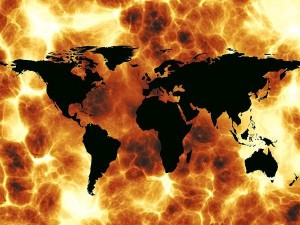 The best short definition I’ve heard, courtesy of my friend Stirling, is that morals are how you treat people you know. Ethics are how you treat people you don’t know.
The best short definition I’ve heard, courtesy of my friend Stirling, is that morals are how you treat people you know. Ethics are how you treat people you don’t know.
Your morality is what makes you a good wife or husband, dad or mother. A good daughter or son. A good friend. Even a good employee or boss to the people you know personally in the company.
Your ethics are what makes you a good politician. It is what makes you a statesman. It is also what makes you a good, humane CEO of any large company (and yes, you can make money and pay your employees well as Costco proves.)
When you’re a politicians or a CEO, most of what you do will affect people you don’t know, people you can’t know, people who are just statistics to you. You have no personal connection to them, and you never will. This is at the heart of Stalin’s comment that “a single death is a tragedy, a million deaths a statistic.” Change the welfare rules, people will live or die, suffer or prosper. Change the tax structure, healthcare mandates, trade laws, transit spending–virtually everything you do means someone will win, and someone will lose. Sometimes fatally.
Ethics is more important than morality in creating a functioning society. This comes back to what I was discussing earlier, that it is worse to kill or harm more people than to kill or harm fewer people.
Morality dictates that you take care of your family, friends and even acquaintances first. It is at the heart of the common admonition to “put your family first.” Whenever I hear a politician say “I put my family first,” I think “Then you shouldn’t be in public office.”
We call the family the building block of society, but this is nonsense except in the broadest sense. The structure of the family is entirely socially based, generally on how we make our living. A hundred years ago in the US and Canada, the extended family was the norm, today the nuclear family is, with single parent families coming on strong. In China, this transition, from extended to nuclear family, took place in living memory, many adults still in their prime can remember extended families, and were raised in them. The wealthy often have their children raised by servants (I was for my first five years), tribal societies often put all male children into the same tent or tents at puberty, and so on. A hundred and fifty years ago, children were taught at home, by the extended family, and not by professional teachers. They spent much more time with family until they were apprenticed out, if they were. To be sure, children must be born and raised for society to continue, men and women must come together to get that done, but there are many ways to do it, and God did not come down and mandate the nuclear family.
This may seem like an aside from the main point, but it is not. Family is not fundamental, it is not first. Society is first, and family is shaped by the needs and ideology of the society.
For a large society–a society where you can’t know everyone–to work, ethics must come before morality, or ethics and morality must have a great deal of overlap. By acting morally, you must be able to act ethically.
Our current ethical system requires politicians to act unethically, to do great harm to people they don’t know, while protecting those they do. This can hardly be denied, and was on display in the 2007/8 financial collapse and the bailout after. The millions of homeowners and employees politicians and central bankers did not know were not helped, and the people the politicians and central bankers and treasury officials did know, were bailed out. Austerity, likewise, has hurt people politicians don’t know, while enriching the corporate officers and rich they do know.
The structure of our economy is designed to impoverish people we don’t know. For developed nations’ citizens, this means people in undeveloped nations. For the rich, this means cutting the wages of the middle class. For the middle class, it means screwing over the poor (yes, the middle class does the day to day enforcement, don’t pretend otherwise.) We are obsessed with “lowering costs” and making loans, and both of those are meant to extract maximum value from people while giving them as little as they can in return.
We likewise ignore the future, refusing to build or repair infrastructure, to invest properly in basic science, and refusing to deal with global warming. These decisions will overwhelmingly affect people we don’t know: Any individual infrastructure collapse won’t hit us, odds are, and global warming will kill most of its victims in the future. The rich and powerful, in particular, believe that they will avoid the consequences of these things. They think it will affect people other than them.
To put the needs of the few before the needs of the many, in public life, is to be a monster. But even in private life, if we all act selfishly, as our reigning ideology indicates we should, we destroy ourselves. If we all put only ourselves and those we love first, and damn the cost to everyone else, our societies cannot and will not be prosperous, safe, or kind.
The war of all against all is just as nasty when it is waged by small kin groups as when it is waged by individuals.
(Reprinted from 2013: this is the most popular article, by traffic, I ever wrote.)
The results of the work I do, like this article, are free, but food isn’t, so if you value my work, please DONATE or SUBSCRIBE.

 This is vastly disappointing, even though, after the appointment of Bolton to the White House, it is not all that surprising.
This is vastly disappointing, even though, after the appointment of Bolton to the White House, it is not all that surprising. It is said that once upon a time, Siddhartha Gautama, before he was the Buddha, was sitting on the ground and was overwhelmed by a great feeling of sweetness towards all that lived, from the bug he saw on the ground, to the grass, and trees, to all the people, and including himself, without any distinction. He remembered that he had felt this way before, as a young child, and he realized in this feeling part of the solution he had sought to the problem of ending suffering.
It is said that once upon a time, Siddhartha Gautama, before he was the Buddha, was sitting on the ground and was overwhelmed by a great feeling of sweetness towards all that lived, from the bug he saw on the ground, to the grass, and trees, to all the people, and including himself, without any distinction. He remembered that he had felt this way before, as a young child, and he realized in this feeling part of the solution he had sought to the problem of ending suffering.